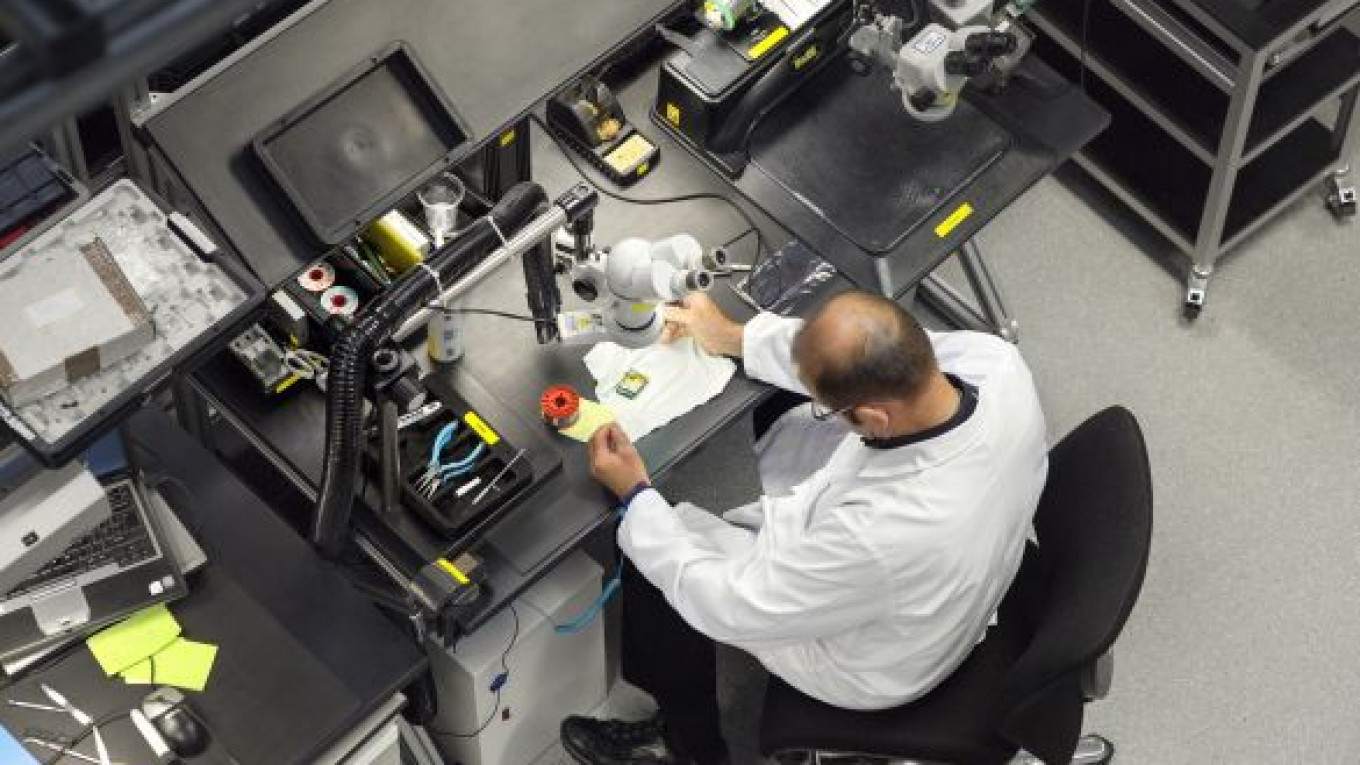Correction Appended
British luxury telephone manufacturer Vertu has launched an expansion drive in Russia under which it will take back ownership of its local distribution network, acquire boutiques from its former distributor, and open new stores.
Vertu, whose handcrafted phones sell for an average of $8,000 in Russia, said Thursday that it took operational control of a brand boutique in Moscow's GUM department store earlier in the week and that it would secure four more boutiques in the second quarter of 2014.
Of those boutiques, two are on Ulitsa Petrovka and Kutuzovsky Prospekt in Moscow, one is on Nevsky Prospekt in St. Petersburg and one in Yekaterinburg.
In addition, the company plans to open boutiques in the TsUM department store in Moscow and the DLT department store in St. Petersburg in the second quarter.
”Throughout 2014 we will be strengthening our customer relationships, offering them new products and services that have previously been unavailable in the Russian market, such as product personalization," Vertu's general manager in Russia, Jean-Christophe Cattin, said in an e-mailed statement. "We want to build on our reputation for delivering a unique and highly tailored individual service.”
Vertu spent "several million dollars" acquiring the five brand boutiques, said Alexei Popov, the owner of Vertu's former distributor, Wital, in comments to Kommersant.
Vertu, which emphasizes design rather than technology, was founded by Nokia in 1998 on the proposition that if people would shell out for luxury watches, they would for telephones as well. Vertu handsets often incorporate precious metals. Some come finished with fine calf leather, alligator skin or diamonds.
Verti, which entered Russia in 2004, sold a total of 251 handsets in the country last year, including 238 regular phones for 84.6 million rubles ($2.5 million) and 13 smartphones for 3.9 million rubles ($115,000), according to Yevroset, a leading phone retailer.
The company's global revenue in 2012 reached nearly 300 million euros ($405 million), according to The Wall Street Journal. However, the company's overall market share in Russia has declined since 2010, dropping from 0.007 to 0.001 percent in 2013.

A Vertu Ti, handmade in Britain with grade 5 titanium and a sapphire crystal screen, getting its finishing touches.
This may be due to a shift in consumer preferences away from the bling that defined the first years of Russian capitalism and toward value for money. The change was documented in a recent survey by brand consultancy Landor.
Vertu clearly sees promise in the Russian market. "Starting this year we will manage all processes on our own, like customs clearance and the delivery of handsets and accessories at sales points," Cattin told Vedomosti.
"This will significantly improve the quality of work with our partners, and the brand will be better represented in the regions, " he said.
In addition to the the seven brand boutiques that Vertu will manage directly, 33 additional sales points are currently in operatation across Russia through local trade customers, the company said.
Editor's note: An earlier version of this story provided the wrong surname and title for the general manager of Vertu Russia. The company executive's name is Jean-Christophe Cattin, not Katin, and his title is general manager of Vertu Russia, not CEO of Vertu.
A Message from The Moscow Times:
Dear readers,
We are facing unprecedented challenges. Russia's Prosecutor General's Office has designated The Moscow Times as an "undesirable" organization, criminalizing our work and putting our staff at risk of prosecution. This follows our earlier unjust labeling as a "foreign agent."
These actions are direct attempts to silence independent journalism in Russia. The authorities claim our work "discredits the decisions of the Russian leadership." We see things differently: we strive to provide accurate, unbiased reporting on Russia.
We, the journalists of The Moscow Times, refuse to be silenced. But to continue our work, we need your help.
Your support, no matter how small, makes a world of difference. If you can, please support us monthly starting from just $2. It's quick to set up, and every contribution makes a significant impact.
By supporting The Moscow Times, you're defending open, independent journalism in the face of repression. Thank you for standing with us.
Remind me later.






